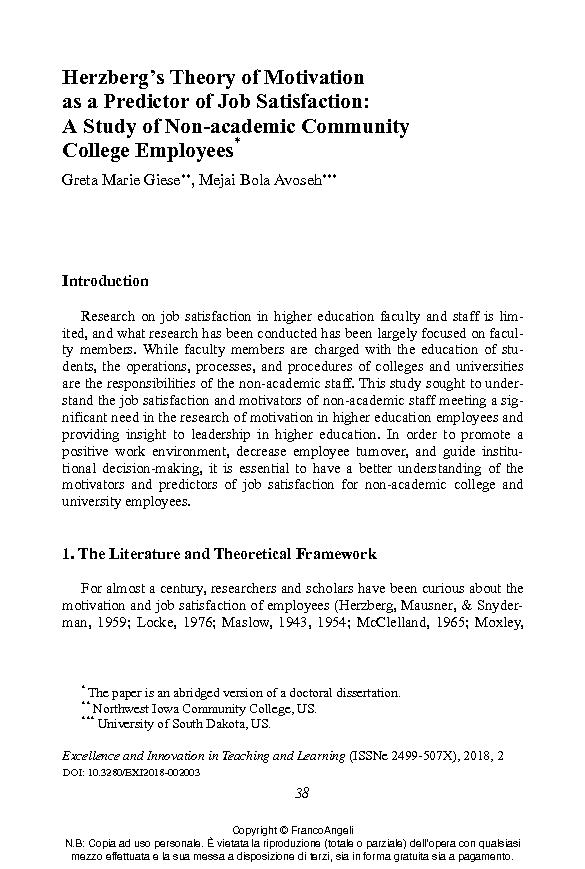Herzberg's Theory of Motivation as a Predictor of Job Satisfaction : A Study of Non-academic Community College Employees
38-52 p.
This study was designed to identify the factors that influence non-academic community college employees with a focus on the State of Iowa, United States. Non-academic employees have been mostly overlooked in the body of research on job satisfaction of higher education employees, with much of the research focusing on faculty members. Herzberg's Theory of Motivation, which states that there are two sets of factors that influence job satisfaction, was used as the theoretical framework for this study. The study utilized multiple regression analysis to examine how multiple factors influence overall job satisfaction. Data was collected using an electronic survey instrument. The findings showed that several motivator factors were significant predictors of overall job satisfaction including achievement, responsibility, work itself, recognition, growth and development, and sense of accomplishment. The findings also showed that several hygiene factors were significant predictors of overall job satisfaction.
There are significant implications of this study for community college leaders and administrators especially in the United States. [Publisher's text].
Fait partie de
Excellence and innovation in learning and teaching : research and practices : 3, 2, 2018-
Articles du même numéro (disponibles individuellement)
-
Informations
Code DOI : 10.3280/EXI2018-002003
ISSN: 2499-507X
DISCIPLINES
KEYWORDS
- Herzberg, motivation, community colleges, job satisfaction, Iowa



